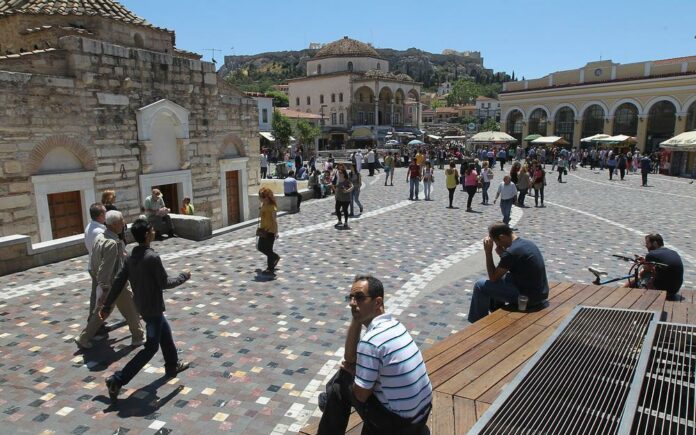A strong increase in demand for hotel rooms in the greater Athens area has led to several new units opening, as well as new projects coming on line in the future, whereas many low-end properties have closed, according to a recent report by GBR Consulting on the Athens hospitality sector.
According to the firm, over the past two and a half years about 1,000 new hotel rooms have been added in central Athens, including the five-star Electra Metropolis and the four-star Athens Avenue in 2016, the four-star Athenaeum Grand Hotel in 2017 and recently the four-star Athenaeum Palace & Luxury suites, the Wyndham Grand Residences & Suites and the four-star Breeze Boutique Hotel.
In addition, about 750 hotel rooms re-opened over the same period, having previously shut down during the first years of the Greek economic crisis in 2009.
These include the four-star Athens Tiare, the five-star Wyndham Grand and the renamed five-star Athens Hyatt Regency, opening again in August 2018 to succeed the one-time Ledra.
Another 400 new hotel rooms are currently under construction in central Athens, including the five-star Academia of Athens (Autograph), the Coco Mat Acropolis and a property belong to the former Agrotiki Bank (Lampsa SA), which will likely introduce the brand MGallery of Accor to the Athens market. Furthermore, GBR counted roughly another 400 new hotel rooms that have been announced or are planned.
Currently, there are 720 hotel rooms out of operation, including the long-dormant Acropol hotel, La Mirage on Omonia square and the Esperia Palace, on Stadiou Avenue. Regarding the latter property, its legal owner, the social security umbrella organization in Greece, known as EFKA, aims to lease the 185-room property for 30 years, with the option of another 10 years to an operator that is willing to invest at least 10.5 million euros.
With respect to the rooms-to-let sector in central Athens, a whopping growth rate of 239 percent in terms of properties and 157 percent in terms of rooms was recorded over the past three years.
About 72 percent of the units in operation currently feature a four-key category, but many of them are billed as luxury hotels.
At the same time, Greece’s Independent Authority for Public Revenue (AADE) is in the process of launching a long-promised electronic registry for property owners leasing their homes via online sharing platforms, such as AirBnB.
GBR’s analysis focused on central Athens, without considering developments in Piraeus, the so-called “Athens Riviera” along the Greek capital’s southeast coast and extending all the way to Cape Sounion, as well as the east coast of Attica prefecture (east of Athens proper), which was hard hit by a deadline wildfire resulted in more than 90 fatalities and scorched roughly 1,260 hectares of land.














